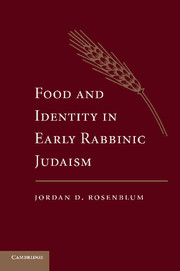1 - Realia
Published online by Cambridge University Press: 06 July 2010
Summary
Food is central to our sense of identity. The way any given human group eats helps it assert its diversity, hierarchy and organization, and at the same time, both its oneness and the otherness of whoever eats differently. Food is also central to individual identity, in that any given human individual is constructed, biologically, psychologically and socially by the food he/she choses [sic] to incorporate.
Human beings are omnivores. Unable to survive on a single species of plant or animal, we must turn to a cornucopia of fruits, vegetables, and protein sources to acquire all the nutrients necessary for survival. In this search for protein, carbohydrates, vitamins, and minerals, human beings look for variety; at the same time, they attempt to avoid danger. For example, although a dish might taste better (and be more nutritious) with a variety of mushrooms, this benefit must be weighed against the potential that one of those mushrooms could be poisonous. This phenomenon is often referred to as either the “omnivore's paradox” or, more famously, “the omnivore's dilemma.”
In the ancient Mediterranean (and, in fact, in all places and time periods prior to the invention of modern refrigeration and transportation), human beings relied on the food sources that were either available in their immediate environment or that preserved well enough to travel. Although this study is focused primarily on tannaitic discourse on culinary and commensal regulations, it is important to contextualize this prescriptive rhetoric within its historical milieu.
- Type
- Chapter
- Information
- Food and Identity in Early Rabbinic Judaism , pp. 15 - 34Publisher: Cambridge University PressPrint publication year: 2010



